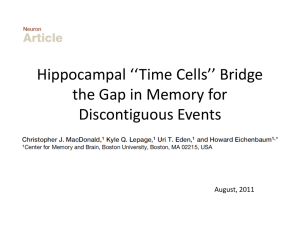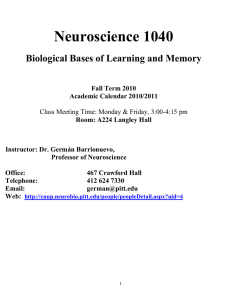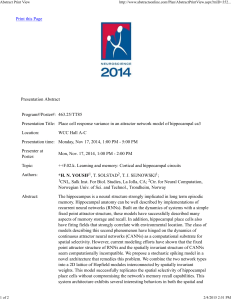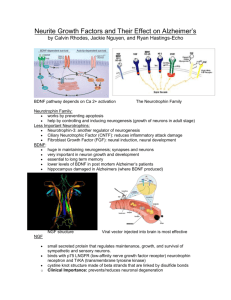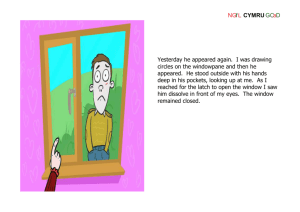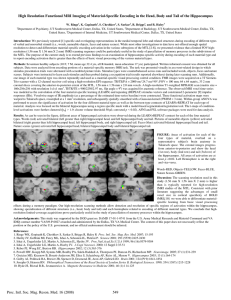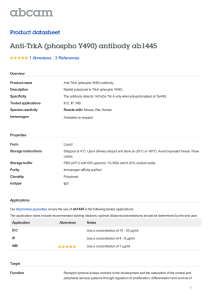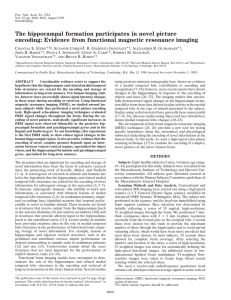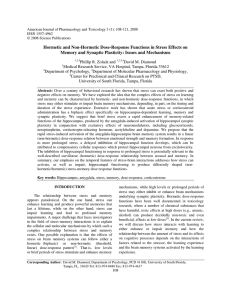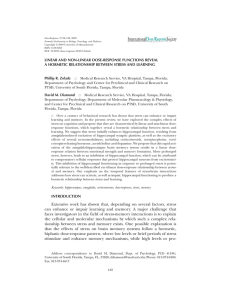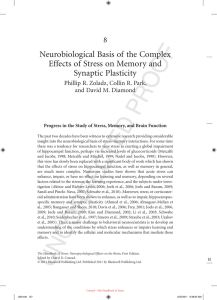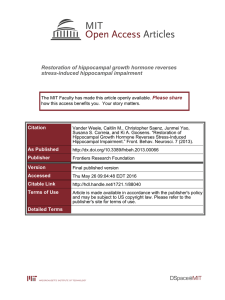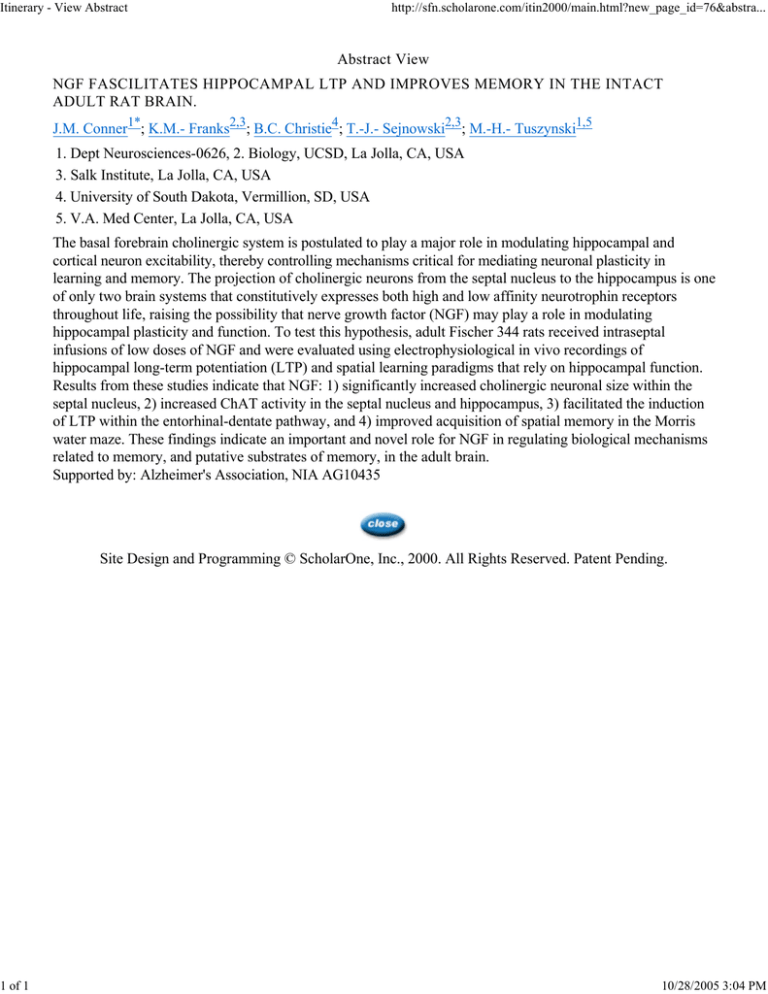
Itinerary - View Abstract
1 of 1
http://sfn.scholarone.com/itin2000/main.html?new_page_id=76&abstra...
Abstract View
NGF FASCILITATES HIPPOCAMPAL LTP AND IMPROVES MEMORY IN THE INTACT
ADULT RAT BRAIN.
J.M. Conner1*; K.M.- Franks2,3; B.C. Christie4; T.-J.- Sejnowski2,3; M.-H.- Tuszynski1,5
1. Dept Neurosciences-0626, 2. Biology, UCSD, La Jolla, CA, USA
3. Salk Institute, La Jolla, CA, USA
4. University of South Dakota, Vermillion, SD, USA
5. V.A. Med Center, La Jolla, CA, USA
The basal forebrain cholinergic system is postulated to play a major role in modulating hippocampal and
cortical neuron excitability, thereby controlling mechanisms critical for mediating neuronal plasticity in
learning and memory. The projection of cholinergic neurons from the septal nucleus to the hippocampus is one
of only two brain systems that constitutively expresses both high and low affinity neurotrophin receptors
throughout life, raising the possibility that nerve growth factor (NGF) may play a role in modulating
hippocampal plasticity and function. To test this hypothesis, adult Fischer 344 rats received intraseptal
infusions of low doses of NGF and were evaluated using electrophysiological in vivo recordings of
hippocampal long-term potentiation (LTP) and spatial learning paradigms that rely on hippocampal function.
Results from these studies indicate that NGF: 1) significantly increased cholinergic neuronal size within the
septal nucleus, 2) increased ChAT activity in the septal nucleus and hippocampus, 3) facilitated the induction
of LTP within the entorhinal-dentate pathway, and 4) improved acquisition of spatial memory in the Morris
water maze. These findings indicate an important and novel role for NGF in regulating biological mechanisms
related to memory, and putative substrates of memory, in the adult brain.
Supported by: Alzheimer's Association, NIA AG10435
Site Design and Programming © ScholarOne, Inc., 2000. All Rights Reserved. Patent Pending.
10/28/2005 3:04 PM

